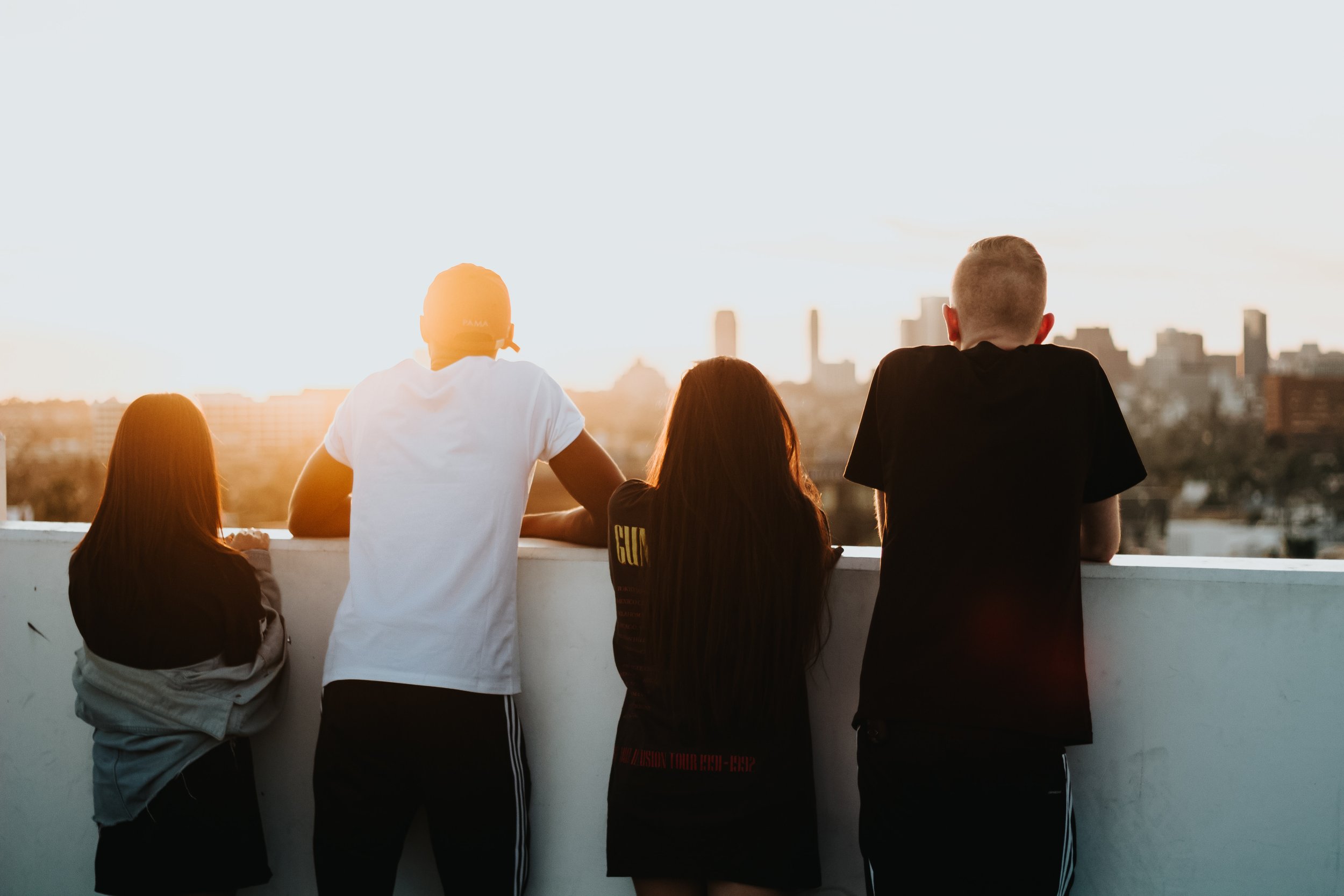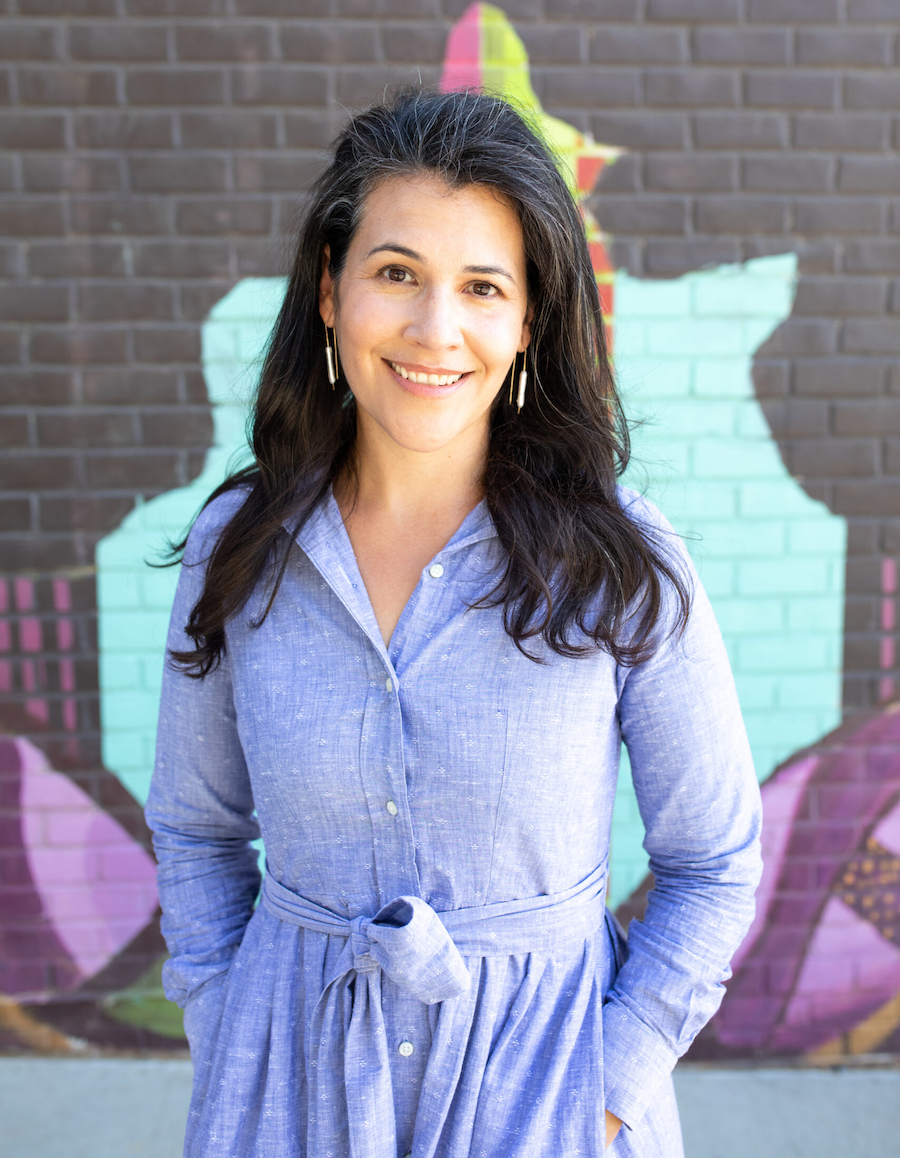The Foresight Initiative 2021 - 2023
A Snapshot of What’s Possible
THE CHALLENGE AND THE OPPORTUNITY
The COVID-19 pandemic and related challenges brought extreme volatility upending our lives. Under-resourced young people in particular were increasingly traumatized by the violence, racism, and political unrest in their communities. Youth services struggled to respond to increased needs, and because all youth were showing signs of trauma and instability, mainstream parents were pressuring teachers and schools to absorb these challenges. Today, social workers and teachers are exhausted and in short supply and longstanding problems related to diversity, pay inequity, and burnout are being called out. Administrators still struggle to keep programs going, revive their workforce, and re-allocate resources. Funders who responded to the immediate crisis, have since begun to shift priorities, altering the funding landscape.
But innovation is born of crisis and in the past two-plus years we have seen this firsthand. Technology rushed in with all manner of solutions, forever changing the workplace with the acceptance of remote work, virtual meetings and conferences. Online education and telehealth is proving effective for young people, especially in rural areas. Online mental health care is promising, but so far a mixed bag for many youth where an in-person therapeutic relationship is key to healing.
In our view, a greater appreciation for the lived-experience and creativity of young people, as well as professional collaboration and wellbeing, have been the biggest wins to come out of this period of loss. Youth are now being invited to the table more often and in new and myriad ways. Their feedback and design ideas are helping to center programs around their experience. Professional collaboration across the field is blossoming, and despite the heaviness of the work, a renewed sense of purpose and joy is a priority for leaders and practitioners. Why did it take so long to arrive at this more enlightened place? Again, innovation is often born of crisis.
OUR RESPONSE
It was within this dynamic context that Youth Catalytics launched The Foresight Initiative in early 2021. We wanted to explore the creative pivots and forward-thinking innovations that would lead us into the future. Our inquiry was organized into three parts:
1) Surveying our primary partners and selectively compiling what other youth development experts were publishing;
2) Facilitating deep and powerful focused conversations with young people; and
3) Interviewing a diverse set of leaders across the sector, recording these conversations, and publishing them throughout the year.
Among the questions we asked–what was the worst thing to come out of the pandemic? To which many answered, the trauma of loss. We asked–what was the best? And we heard that unstructured time to reexamine one’s true calling was lifesaving. We asked–what was your biggest learning? And we heard repeatedly that change is possible. And when we asked what specifically changed and will stay changed? People expressed a universal commitment to tackling longstanding societal inequities.
From the outset, The Foresight Initiative intended to showcase experimentation, amplify young voices, and encourage forward-thinking practice. Presented below, is a sampling of the thoughtful and inspiring testimonials we gathered. Upon review, we hope that what is expressed here encourages others to explore their own creativity and expand their own thinking about what’s possible. For both the field and the movement we offer this snapshot as an incentive to rise up and meet new opportunities for innovation as they inevitably continue to emerge.
Thinking big. And differently. And courageously.
DATA
There is a growing body of literature on how young people have been affected by the COVID-19 pandemic and its many ripple effects, which we have curated here. To add more nuance to the data, we held our own conversations with teenagers aged 12-17, and young adults, aged 18-26, who were part of national, state, and local organizations across the country. We also held conversations with 25 youth service professionals and surveyed another 100 about how these challenges affected their work with young people. One of our biggest takeaways regards the effects of trauma—common among youth in marginalized groups and now being experienced by large segments of the mainstream adolescent population.
As we return to relative normalcy, with increased awareness and treatment for trauma more available, we hope this generation of young people will begin to stabilize. But ultimately, this will depend on how our care systems respond. So for the moment, here are the powerful experiences and personal recommendations from those we spoke with. People shared their fears and anxieties alongside their hopes and dreams.
Read and listen below.
Conversations with Young People
The pandemic seriously impacted some youths’ mental health. Poor mental health, loneliness, and anxiety plagued many young people and didn’t necessarily lift with pandemic restrictions. Offers of help sometimes didn’t feel genuine.
“I failed school. I fell into depression. I struggled with self-worth and my career crashed.” ~ D., young adult
“Something that I have learned about myself and others is what anxiety truly feels like and the multiple forms it has.”
~ R., young adult
Young people lost out on social development, and they know it. Periods of isolation short-circuited the normal social development of young people, causing deficits that some expect to be long-term.
“I did lose a lot of social interaction, and to add on to that, I don’t think the social interaction or the social skills that I lost at that time, I don’t think I’ve been fully able to gain them back.” ~ W., age 17
“A lot of the people in my group started to develop, not exactly social anxiety, but they started to not be as happy or close as they were before, probably because of the effects of the pandemic, and honestly, it sort of happened to me as well.” ~ B., age 13
Some groups of youth suffered more than others. Youth in foster care, youth from low-income families, and young people with disabilities or family members with health conditions all say the pandemic was different for them than for their peers.
“For people like me, Covid is really scary and you have to stay safe. When you have high-riskers in your family it becomes 10 times 10.”
~ A., age 15
“Aging out [of foster care] was very hard because it was 2020. My mental health suffered a lot. I have a lot of anxiety about the future, I think about it 24/7. Last year all I kept thinking was, ‘I don’t want to be homeless.’ It was all-consuming.” ~ M., young adult
Online school had many downsides, but also some real benefits. Some students report feeling disconnected, and academic gains slowed down. But others found a new and better school experience online.
“I really loved virtual school because I felt like I could time-manage a lot better. There’s a lot of fluff in the school day where we’re getting directions or reading aloud, but if I read to myself in my head, it would go so much faster. I liked it so much.” ~ G., age 17
I could wake up when I wanted, and have a nice breakfast. It made me more productive throughout the day because I wasn’t tired and falling asleep right when I got to school.” ~ L., age 17
Youth had unstructured time on their hands and made use of it. The pandemic slowed down and even eliminated typical social experiences. At the same time, it created space for self-exploration, and many young people used it to develop or refine new interests.
“I never had the time to be at home and sit down to paint, but once we were doing online school, and I couldn’t go see my friends, and everything was closed, I had all the free time in the world. Painting became a stress-reliever for me, and I still paint two years after everything originally shut down.” ~ A., age 16
“I used to crochet a long time ago and during Covid I picked it back up, and now it’s something I do very consistently.” T., age 15
The pandemic transformed some young people’s worldview. The pandemic prompted some young people to look around at society, their peers, and even their families in a new way. Sometimes they liked what they saw; sometimes they didn’t.
“One thing I learned from others during the pandemic is that many people will look out for themselves over anyone else.… I knew that there was a disaster happening and people were dying because of Covid. It wasn’t a joke, and I learned that I wanted to be someone who spoke up for that.” ~ C., age 16
“My group wasn’t respecting the Covid rules, and that made me uncomfortable. But it also made me realize that I didn’t want to be friends with people who didn’t think about others.” ~ S., age 17
What youth want adults to consider. The pandemic prompted young people to engage in internal and external reflection and come to realizations about their lives and what they want and need from the adults around them.
“Listen to our voices and don’t pretend to understand us if you truly don’t…Also, have deep, meaningful conversations about things. Don’t just scratch the surface and leave it at that. Let youth tell you details.” ~ N., age 16
“Adults can give teenagers a break. We are trying to do our best. It takes a while to reset your mindset and get back to how things were before.” ~ A., age 14
Conversations with Leaders
“I'm immensely proud of Youth Catalytics for taking a courageous stance in learning from such a hard time. As we adapt to this evolving landscape, we find strength in unity, creativity in the voices of our youth, and resilience in our shared commitment to dismantling systemic inequities." —Sixto Cancel, Founder and CEO of Think of Us
‘We’ve got to reset the table.’— Mishaela Durán, President & CEO of The Forum for Youth Investment Read and listen to the conversation here.
‘Kids coming out of the pandemic are not broken.’ —Beth Birnstihl, Mission to Market Director, The National 4-H Council. Read the conversation here.
‘Meeting the existential crisis of this generation.’ —Claire Wyneken, President and CEO of Wyman Center. Read and listen to the conversation here.
‘This money does not belong to us.’— Dr. Gislaine N. Ngounou, Past Interim President and CEO of Nellie Mae. Read and listen to the conversation here.
‘Building the machine to make sure it gets done.’—Sixto Cancel, Founder and CEO of Think of Us. Read and listen to the conversation here.
‘Get in the beehive!’—Steven Jella, Associate Executive Director for San Diego Youth Services. Read and listen to the conversation here.
The Foresight Initiative brief.
Read more responses from youth and practitioners.
See our curated literature review.

















